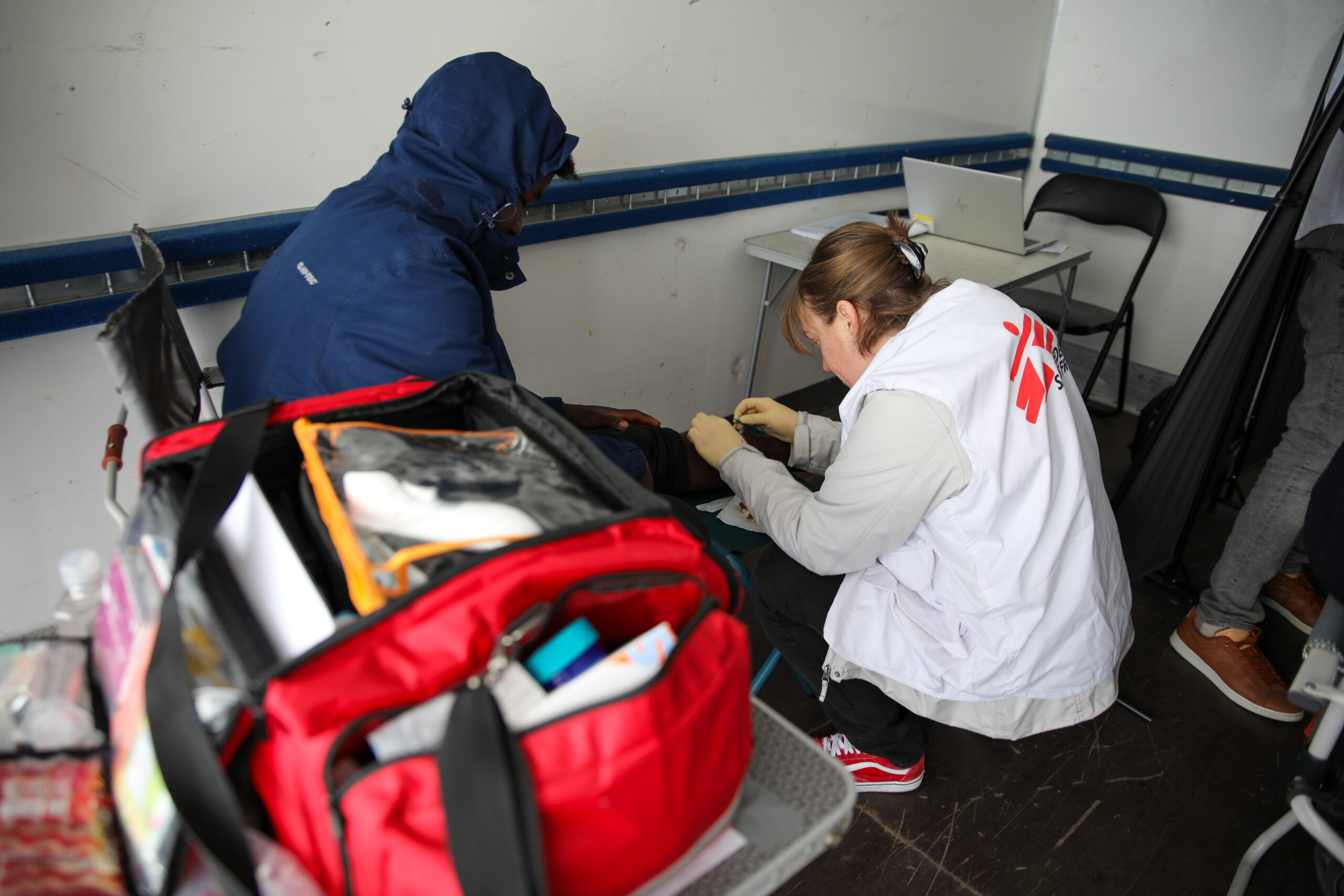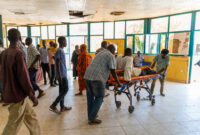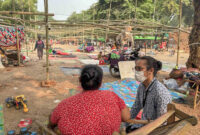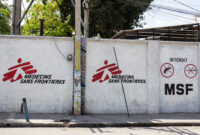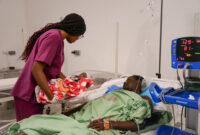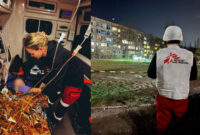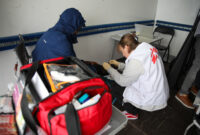CALAIS, France: MSF calls on authorities to provide emergency shelter to people on the move
In an effort to prevent children, women and families from being forced to sleep rough in harsh winter conditions, Doctors Without Borders/Médecins Sans Frontières (MSF) provides emergency shelter at a private building in the northern French city of Calais. The medical humanitarian organization reminds the French authorities that providing emergency accommodation is their responsibility. The authorities have a duty to ensure existing facilities are available and meet the needs of migrants, refugees and asylum seekers, at least until the end of the winter.
Since Dec. 2, 2024, in a very hostile environment for people on the move in France, MSF provided accommodation to more than 200 people in Calais. This includes around 60 families, more than 80 children, over 70 unaccompanied minors, and pregnant women. If our teams had not intervened, these vulnerable people would have been forced to sleep rough in adverse weather conditions.
“This policy of non-reception, which deliberately leaves people sleeping rough, is not deterring anyone from coming to the coast to try to cross the Channel. These choices are simply inhumane and undignified.”
Feyrouz Lajili, MSF project coordinator in Calais
Inadequate and dysfunctional services
Most migrants, refugees and asylum seekers live outdoors in tents or in disused premises, with limited access to basic hygiene services and food, and are regularly refused access to emergency accommodation by the competent French authorities. “Many of the people we have dealt with have told us they have been turned down by existing emergency accommodation services. Most of them are refused by the 115 hotline, a national service providing information for the homeless, on the pretext that they have already spent one night in a sheltered area, which is the maximum tolerated for people on the move. As for the Reception and Situation Examination Centres, they are often at full capacity and very difficult to access. It’s completely dysfunctional,” says Feyrouz Lajili, MSF project coordinator in Calais.
In December, the Pas de Calais prefecture failed to activate the emergency cold weather plan to protect the most vulnerable people, despite extremely low temperatures. “And since the start of January, this emergency cold weather plan has only been implemented sporadically. The result? Hundreds of people are sleeping rough, in the snow or the rain, and some don’t even have a tent for shelter anymore,” says Feyrouz Lajili.
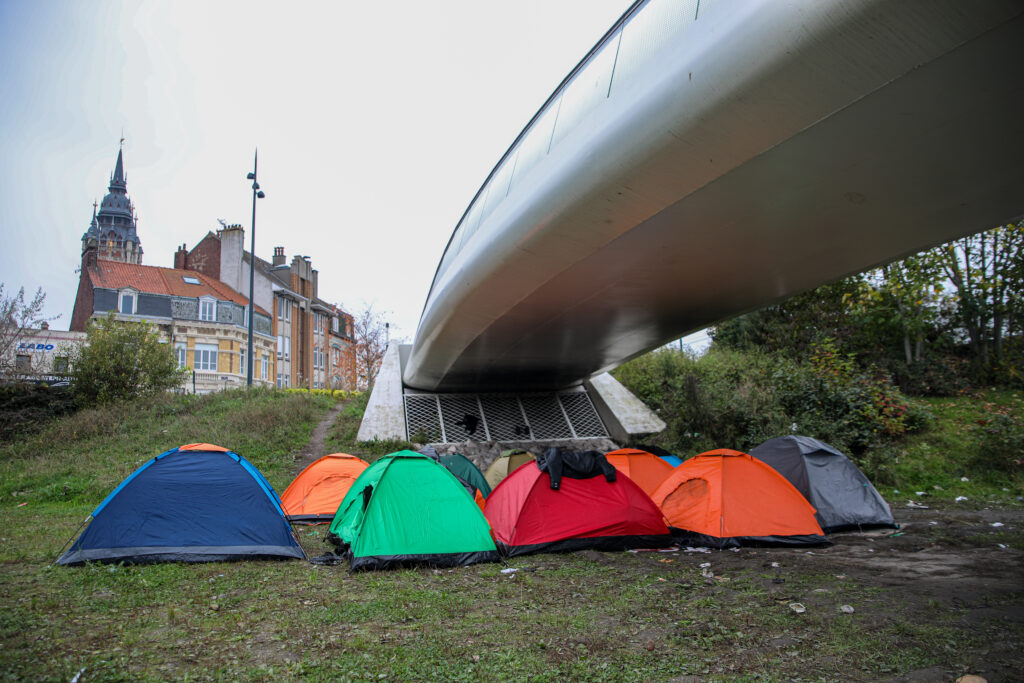
The French authorities must take responsibility for emergency shelter
In Calais and along the northern coast, people on the move are living in extreme poverty on the street, with regular evictions from informal settlements and very limited access to water, hygiene and healthcare. “This policy of non-reception, which deliberately leaves people sleeping rough, is not deterring anyone from coming to the coast to try to cross the Channel,” says Feyrouz Lajili. “These choices are simply inhumane and undignified. The French authorities must take responsibility and provide suitable and accessible emergency shelter for people,” says Lajili.
Last winter, MSF set up a similar response in Calais, in coordination with the same partner associations: Utopia 56, Refugee Women Centre and Secours Catholique. Between Jan. 22, 2024, and March 31, 2024, 333 people benefitted from a night’s respite in warmth and shelter.
